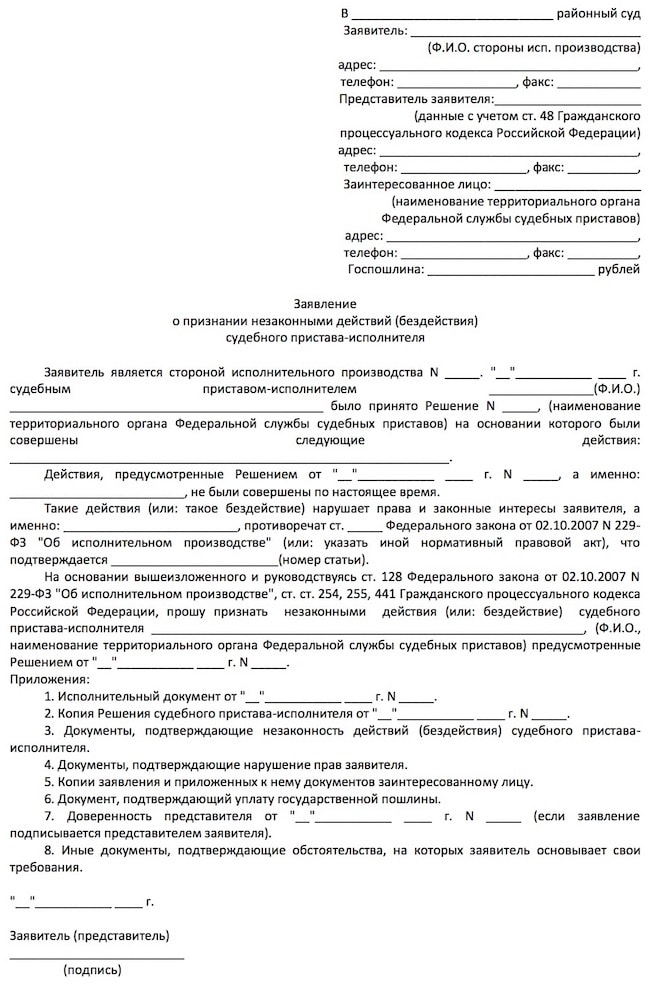As soon as the bailiffs find out the debtor’s place of work, they immediately begin to make inquiries about his income. The modern procedure for collecting debts by authorized bodies involves carrying out a whole range of measures. This is a set of methods and methods that include access to the debtor’s assets and restriction of his legal capacity. In this regard, it is the bailiffs who are given the right, upon the request of collectors, to carry out inquiries through various authorities, the purpose of which is to clarify the personal data of a person or his lifestyle.
WATCH THE VIDEO ON THE TOPIC: Bailiffs could not remove the debtor’s property part 1 lawyer Vadim Vidyakin
How bailiffs find out the debtor’s place of work
- Tax service and banks to identify accounts.
- Traffic Safety Administration to find out information about the availability of vehicles.
- Registers containing information about real estate.
- Pension fund - information about employment and the nature of activities.
What to do in such cases? Requests from bailiffs to the tax office and pension fund already provide information about the real position and income of the debtor. Information about bank accounts and the amounts available in them helps to establish the most accurate state of financial assets.
Determination of the bailiff department at the debtor's address
An application to the Office of the Federal Bailiff Service can be submitted in two ways - drawn up on paper or electronically. In the latter case, the claimant needs to register as a user on the FSSP website; you can also use the State Services portal.
Rarely do refund cases go quickly and smoothly. It all depends on the debtor’s willingness to cooperate with the bailiff, which rarely happens. More often than not they hide. Therefore, the plaintiff faces difficulties, because the application can only be filed if the location of the defendant is clarified.
Bailiffs find out the debtor's place of work
Among the materials that the collector can provide are copies of the personal data of his negligent client, for example, a photocopy of the debtor’s identity card (passport). A pedantic bailiff may well go so far as to conduct a small investigation - arriving at a person’s place of residence and interviewing neighbors. Thus, you can, using your legal authority, find out the name of the organization that employs the bank client or alimony payer.
Among the sources that allow us to identify the place of work of the debtor is the information provided by the claimant himself when applying to the judicial authorities. The fact is that when applying for a loan, the borrower himself indicates such data, and confirms this with a certificate from his place of employment. Based on this document, the average income of the client is determined and a decision is made on the issuance of borrowed funds.
Writ of execution for the debtor's work
Hello Dmitry. One of the recovery measures is the sending of a writ of execution by FSSP employees to the debtor’s work. The basis for this is Federal Law 229. Many will be interested in what exactly is written on this sheet, is the exact amount of the write-off indicated? Should accountants notify management, since most people don’t want to involve their bosses in their problems?
The writ of execution is sent to the place of work - the creditor has the right to demand 50% of the salary. After all, this is not an account on which it is not written that it is a salary account and you can play for the “fool”, they say they didn’t know, this is the debtor’s salary - here everyone knows the principles that everything cannot be taken away from the debtor.
Protection of consumer rights of the Tomsk region
1) Tax authorities (for the purpose of establishing the Unified State Register of Legal Entities, Taxpayer Identification Number, organizational and legal form, actual address of the debtor, information about the founders, accounts in banks and other credit organizations, the presence of receivables, information about the initiation or introduction of bankruptcy proceedings against the debtor, information about suspending operations on all accounts of the debtor, providing the latter with information about the presence of cash registers registered with the debtors at the location of specific retail outlets).
The request specifies the deadline for providing the information requested by the bailiff. In accordance with Part 10 of Article 69 of the Federal Law “On Enforcement Proceedings” for tax authorities, bodies carrying out state registration of rights to property, persons keeping records of rights to securities, banks and other credit organizations, other bodies and organizations, the specified period is seven days from the date of receipt of the request.
Is it possible to inform the bailiffs about the location of the debtor?
Note that a person who is obliged to make payments in favor of a child or other dependent may work unofficially, receiving a “black” salary. In such a situation, it is necessary not only to establish the place of his activities, but also to prove the existence of actually established labor relations, which is also quite difficult.
- The debtor will be prohibited from leaving the country in accordance with the rules established in Federal Law 229.
- If the value of the property does not cover the expenses, then the remaining debt will be collected from wages or other source of income. However, before this, the forensic specialist will need to find out about the offender’s sources of income and his place of work.
If the bailiff finds out the debtor’s place of work
In order to effectively resolve problems with a specific person, it is necessary to immediately find out where he serves in order to, if necessary, collect the debt from his salary. There are several key methods by which a specialist learns about the place of duty:
Debt obligations arise quite often in modern society. These can be both credit borrowers and citizens who do not want to transfer alimony to their children. You can often encounter a situation where a defaulter does not want to fulfill his obligations and hides his income. In such a situation, collection of payments will occur with the direct participation of bailiffs.
Interaction between the debtor and the bailiffs
The first step, as they usually force bailiffs to work on a writ of execution, is to call the bailiff service (FSSP) to find out who is processing your court order (writ of execution). It is sent to a specific contractor for execution 3 days after registration. It is necessary to write down and remember your full name. and a special title of an official, since in the future you will have to intensify his actions.
The second step is to call again to agree on a time at which it is convenient for you to visit the bailiff in order to familiarize yourself with the results of his work in implementing the collection of alimony.
The third step is direct conversation. But conversation is not a conversation about anything, but purposeful, law-based actions to which you have the right. During the conversation, in a polite manner, ask the executor to give you a copy of the resolution to initiate enforcement proceedings and requests printed on paper:
- At the debtor’s place of work;
- To banks;
- To the tax authorities;
- To Rosreestr;
- At the traffic police;
- In GIMS;
- To other institutions that can confirm that the debtor has property and assets that can be sold to collect alimony or pay off the resulting debt.
Another option for obtaining alimony if the bailiffs are inactive is to appeal against his actions, or rather inactions.
Traditionally, there are three authorities where you should complain:
- Apply at the appropriate level - to the senior bailiff;
- To the prosecutor's office;
- To court.
Complaining about employee inaction to the immediate supervisor is ineffective. The senior bailiff receives dozens of such complaints every day. To answer them, there are templates that are designed to reassure claimants and delay time. They usually contain excerpts from the aforementioned Federal Law No. 229, an indication of deadlines and excerpts from job descriptions.
You can achieve the collection of alimony after the expiration of a two-month period, if the official is inactive, by filing a complaint with the prosecutor's office. The complaint must state the reasons why you believe that the bailiff is not fulfilling his duties to collect. Attach photographs of the enforcement proceedings materials that you took when reviewing them.
It is more effective to appeal the actions of an official in court. To do this, file a complaint (it is recommended that it be a complaint, not a statement of claim) against the actions of an official of an executive authority to the court (district/city) at the location of the bailiff service. A complaint to the court is paid with a state fee of 300 rubles. The period for consideration of the complaint is 10 days.
We invite you to read: Changing the purpose of a land plot
These deadlines are almost never met by the courts. Excuse - sending a request to a government agency to obtain case materials. The court generously takes two weeks for this, even if the bailiffs are within walking distance of the court. However, judicial practice shows that in most cases the court takes the side of the creditor.

After a court decision on a complaint is made, work usually accelerates. Previously unsent requests are urgently sent out, a search order is issued, and measures are taken to seize the debtor’s property. In other words, I remember a 30-page document that sets out in detail the algorithm of actions of an ordinary bailiff for executing a court decision and working with debtors.
In this article, you learned how to get the required alimony if the bailiff is inactive, and where to turn first.
Court employees perform their own duties; it is for this reason that a citizen does not have the right to interfere with their work. Therefore, when such an employee comes to you, you need to check his documents and make sure that he is acting in accordance with the law.
It is best to voluntarily comply with the decision of the judicial authority within the specified time frame. In this situation, the citizen will not have to waste nerve cells on unpleasant and frequent visits from bailiffs. In addition, if the bailiff came home, it is better to communicate peacefully with him without insults, since he is an official in the execution. Inappropriate behavior may result in a fine or correctional labor.
It is worth saying that defaulters who are determined to have an adequate conversation with authorized employees can receive a deferment of debt payment. To do this, you need to write an application to the judicial authority and wait for its approval.

The powers of bailiffs are expanding on a legislative basis, as the number of willful defaulters increases from year to year.
Bailiffs' rights
The rights of bailiffs to collect debt from an individual give bailiffs the opportunity to:
- submit a request to each bank institution to determine the fact that the borrower is considered their client;
- apply to work in order to find out the amount of wages;
- pay visits to the debtor within the period of time specified by law - from 6 a.m. to 10 p.m.;
- carry out actions with property, that is, arrest property, seize it and sell it in the future.
Unlike an agent of a collection agency, such an employee is in any case able to enlist the support and assistance of authorized bodies. When the bailiff does not violate various regulations, the court will be on his side in any situation. As a result, the duties of the bailiff for debt collection include competent and coordinated work with the borrower.
Borrower rights
The borrower's primary duty in enforcement proceedings is to promptly and completely comply with all requirements specified in the court's order, decree or relevant sheet.
The debtor also has rights, namely:
- familiarization with the documentation of the case;
- providing additional data on the conflict situation;
- carrying out executive duties;
- indicating a personal point of view and much more.
Therefore, every citizen involved in a case needs to remember that both authorized bodies and people with debts have specific legal options and responsibilities.
Can bailiffs find out a place of work in another city?
Solving problems with bailiffs Samoilov Sergey Alekseevich lawyer Nikolai Viktorovich Korolev lawyer Tatyana Mikhailovna Leonova lawyer Olga Evgenievna Mayorova lawyer Debt obligations arise very often in modern society. These can be both credit borrowers and citizens who do not want to transfer alimony to their children. You can often encounter a situation where a defaulter does not want to fulfill his obligations and hides his income.
This is interesting: Is it possible to pay for the light for only one part in the apartment
If the alimony provider has stopped all payments without explanation, and he has accumulated a debt, the recipient, of course, will be interested in what happened. First of all, the alimony recipient tries to contact the defendant or his employer to clarify the circumstances. If it turns out that a person no longer works in his previous place and no longer lives at his previous address, then a search for the alimony debtor can be initiated. Bodies searching for alimony defaulters When starting search work, it is worth understanding how to find the alimony debtor. There are two main methods that all non-recipients of alimony payments resort to:
Stages of work of bailiffs
When a court issues a writ of execution, the plaintiff has the right to independently send it to the FSSP, or the sheet is sent by the court secretary to the territorial service body.
If the plaintiff independently appeals to the bailiffs, then it is necessary to write a corresponding application with a request to accept the proceedings based on the writ of execution, a copy of which must be attached to the completed application.
We invite you to familiarize yourself with: Sample administrative claim against a bailiff
The deadlines within which bailiffs are required to respond to a received application are established by law.
The process of carrying out the procedure on the part of bailiffs can be divided into three main stages:
- First of all, bailiffs must decide on the possibility of accepting the received application for work. Also at the initial stage, the FSSP decides on the need to search for the debtor and forcefully collect the required amount, if we are talking about collecting a debt or alimony. At this stage, the issue of voluntary fulfillment of the presented demands by the defendant is also resolved;
- The second stage is the implementation of decisions made based on the results of the preliminary analysis. If there is no possibility of voluntary execution of a court decision on a writ of execution or the defendant is hiding, then the bailiffs will initiate a compulsory enforcement procedure, which consists of seizing accounts, forcibly seizing movable and immovable property and organizing a search for the defendant;
- The third stage is the completion of enforcement proceedings. It is carried out by the bailiffs issuing a resolution to suspend the proceedings in this case, and the writ of execution is returned to the claimant.
How do bailiffs find out the debtor’s place of work?
Good afternoon Federal Law of July 21, 1997 N 118-FZ (as amended on December 29, 2020) “On Bailiffs”
Article 12. Responsibilities and rights of bailiffs. In order not to bother the bailiffs, there is an excellent way to pay off debts. Namely: the debtor asks the creditor for bank details and transfers monthly (electronically or tops up the creditor’s card with cash) while keeping the receipts. THE IMPORTANT WHEN TRANSFERING OR DEPOSITING IS TO INDICATE THE NAME OF THE TRANSFER. FOR EXAMPLE, “PAYMENT UNDER THE DECISION/ORDER “name” of the COURT DATED 09.11.2020. This option of settlement with the creditor will create the most comfortable conditions for repayment and settlement of debts. Carefully read the court decision in enforcement proceedings. Take photographs of all documents in production. If you do not agree with the production materials. File a complaint through the office, the chief bailiff of your area against the bailiff who is obliged to execute the court decision. Print on two sheets of paper, one for the institution, the other for you with a mark (date, signature of the person who accepted the application) stamp of acceptance. If you do not receive a response within 10 days, complain to the FSSP Office in your region. If you do not receive a response within 10 days, contact the court at your place of registration with a statement to challenge the actions/inactions of the bailiff. The MIP legal team will draw up all documents, complaints and statements for you using the MIP promotional code 9. Consultations are free. Document preparation services are paid. Representation of interests in court is also paid. For the cost of services, please call +7 (495) 228-26-51 Moscow, Staropimenovsky Lane 18 [email protected] https://advokat-malov.ru/kontakty.html
Debt collection is a set of measures carried out by a bailiff in relation to the debtor, aimed at repaying the existing debt in full. If there is no need to talk about a voluntary repayment procedure, then the most favorable development of events for all parties to the conflict is the repayment of debt through deductions from wages. Many people are interested in how the bailiff finds out the debtor’s place of work? In fact, this is often a difficult task, but the bailiff tries to solve it in order to find the unscrupulous debtor.
This is interesting: How to Find Out the Debt for Housing and Utilities at an Address Via the Internet in Someone Else’s Apartment
How to inform the bailiffs about the location of the debtor
At the same time, he analyzes the citizen’s financial situation and determines his place of work.
- The employee has the right to seize property belonging to the violator.
- property of the debtor under executive documents of a property nature, if the amount of claims under the executive document (executive documents) in relation to the debtor exceeds 10 thousand rubles.
Can a bailiff seize the income and accounts of the debtor's wife? If so, does this apply only to debit accounts or credit accounts too? For such an arrest, does the bailiff need additional court decisions or can he impose an arrest on his own? How do bailiffs even find out about the existence of a debtor’s wife? Is there any basis?
Also read: Certificate of income for 6 months for a subsidy sample
THE TAX SERVICE WILL HELP COLLECT DEBT FROM CONTRACTORS
Within seven days from the date of receipt of the specified request, the tax authority provides the claimant with information about the name, main state registration number and location of the bank in which the debtor’s accounts are opened, as well as the numbers of these accounts.
After winning the court and receiving the decision along with the writ of execution, it is necessary to somehow receive the awarded funds from the debtor. Ideally, he will pay the money voluntarily. But there is also the opposite option, when a company has to knock on the thresholds of various authorities in order to receive its debts by a court decision.
How it all happens
The court order is issued within 5 days from the date of filing the application and comes into force from the date of issue.
The debtor is given 10 days to appeal the order (writ of execution). If no objections are received, the order comes into force. The applicant - the alimony collector - has the right to petition the magistrate to send the court order directly to the bailiff service for execution, without receiving it in person. This opportunity is provided in order to speed up the procedure for collecting alimony. This is where the problem arises.
We offer step-by-step instructions based solely on current legislation and legal mechanisms of influence on negligent officials, after which you will know what to do if the bailiffs are inactive.
How to find out where the alimony debtor works
Refusal to an application must be motivated; the authorized person must have serious reasons for making such a decision. For example, if the bailiff already has information about the payer, which for some reason was not known to the collector.
- Sending an official request to the Russian Pension Fund. Since every employer is obliged to contribute part of the funds to this government agency, thanks to the request it is possible to clarify whether the debtor is officially working or not.
- The next step is a request from the tax office, on the basis of which specialists will be able to provide information about the employment of the defaulter.
- If, based on the results of the first two requests, the bailiff was unable to obtain any information, then the next step is to send a request to the banking organization. Upon receipt of information about the necessary details, the authorized person may seize the accounts until the debt on alimony obligations is repaid.
- If necessary, the bailiff has the right to conduct a full investigation in order to obtain all the information required for the proceedings. For example, during such events, the defaulter’s neighbors, acquaintances and close relatives may be questioned.
Professional quality
A bailiff is, first of all, an official who is in the public service. This circumstance determines the psychological characteristics that an FSSP employee must have.
Working as a bailiff is not at all easy. Feedback from employees suggests that attention and observation are the most important to them. These characteristics are of particular importance in the professional activities of bailiffs guarding court premises and deliberation rooms. They are also needed when monitoring the situation during a meeting, as they help ensure the safety of the people being protected.
These qualities include the bailiff’s ability to maintain steady attention for a long time. Moreover, it must be maintained despite external irritants and fatigue. It is important for the bailiff to be able to distribute his attention to perform several functions, tasks and actions at once.
People in this profession must have the ability to observe not only one, but also several objects simultaneously, noticing even minor changes in their behavior. What other character qualities does working in the bailiff service require? Feedback from FSSP employees speaks of the importance of emotional and volitional qualities. They are necessary for bailiffs in situations where persons are brought in who do not want to appear in court or to repay a debt.
- self-control and balance in conflicts;
— emotional stability in the process of making one or another responsible decision;
— perseverance in overcoming difficulties;
- low suggestibility;
— maintaining high activity;
- the ability to objectively evaluate one’s actions, etc.
There is one more important quality that working as a bailiff requires. Feedback from employees emphasizes the importance of being able to make appropriate decisions in the most difficult work situations. To do this, the bailiff must have high intellectual characteristics. A representative of this profession often has to quickly navigate and make decisions in conflict situations.
- the ability to recreate a visual image from a verbal description;
We suggest that you familiarize yourself with the Marriage Contract when applying for a mortgage
- the ability to immediately see more than one option for the development of events and choose the most effective way out of the current situation;

- the ability to determine the nature of information and make the right decision, even if it is impossible to fully comprehend it due to lack of time.
What other requirements does working as a bailiff impose? Representatives of this profession must have high communication skills. FSSP employees need knowledge about the characteristics of nonverbal communication. They will help to identify the possible intentions of a citizen based on the external behavioral signs of the interlocutor (primarily emotional ones) and stop his illegal actions in a timely manner.
https://www.youtube.com/watch?v=ytaboutru
— the ability to find the right form of communication and the right tone;
- the ability to exert a persuasive psychological influence on the interlocutor and neutralize his aggressiveness;
- ability to play a major role during a conflict;

- the ability to coordinate one’s actions with the actions of other persons.
What other characteristics should a bailiff have? Reviews of the work of FSSP employees indicate the need for a good professional memory. After all, a person in this specialty needs to be able, if necessary, to remember a person’s appearance and operate with a large amount of information.
It is no secret that work in the bailiff service is often conflict-ridden. Feedback from employees indicates that a well-developed response helps them in such situations. This quality will make it possible to act quickly in various extreme situations.
— certain life and work experience;
- interest in the interlocutor himself and his experiences;
— relaxedness, perseverance and self-confidence;
— ability to counteract;
- active personal position.
What other requirements does being a bailiff put forward? It is important for a person in this profession to properly perform his official duties. Exceeding authority by a bailiff is a violation of the law. The legal framework within which the FSSP employee operates must be maintained by the desire to comply with legal norms and the formation of an appropriate stereotype of behavior. Performing the duties of a bailiff is possible only with constant control over one’s actions.
https://www.youtube.com/watch?v=ytadvertiseru
What other characteristics should a bailiff have? Reviews of the work of people in this profession indicate that, within the framework of the law, they sometimes have to use special means or physical force against persons who are in a state of alcohol, drug or toxic intoxication, as well as those who try to obstruct the demands placed on them. Such powers require a person to use them wisely, which should take into account the current situation, etc.
Working as a bailiff is very stressful. That is why a person who decides to devote himself to this profession must have increased stress resistance.
Enforcement proceedings in another region
Enforcement proceedings are in another region, there are no representatives there. There is a phone number for the bailiff, but as always, you can’t get through. Where can I find out the working phone number of ROSP, or rather, the one on which they will answer. My number is periodically busy, that is, it is used for outgoing calls.
Question regarding enforcement proceedings. The debtor (IP) is registered in another region (Kurgan). Worked/works, resides and a writ of execution was issued by the Chelyabinsk court. It is unknown where exactly he lives in Chelyabinsk and where he currently works. But the property has a car with Chelyabinsk license plates. Can I submit documents for foreclosure in Chelyabinsk? Can they refuse? Shipping entails financial losses, besides, where is the guarantee that the mail will not be lost. And in general, due to the current situation, everything will freeze. It is clear that he has nothing and will not have anything in Kurgan (village). Can I ask the bailiffs for the arrest and further sale of the car, a ban on traveling abroad?
How to get bailiffs to work and collect debt
So, the most important thing in working with a bailiff is to control the progress of enforcement proceedings: demand the opportunity to familiarize yourself with the case materials and ask to make copies of all documents of enforcement proceedings for you - the bailiff’s decisions, requests to various government bodies and commercial organizations, answers to the bailiff’s requests. Find out from the bailiff about his plans to collect the debt: what he plans to do, when; offer your assistance in delivering requests to the relevant authorities, etc.
Legal www.pravovedoff.com Author: Igor Golubitsky - Director of Legal Published: Legal newspaper “Status” No. 9 (20) 2012 P.
How to find out where the alimony debtor works and collect money
- The payer is recognized as a person with no income. In relation to such persons, special rules for collecting payments are established. Firstly, the amount that must be transferred to the child monthly is calculated based on the average salary in the country, based on data published by Rosstat. Secondly, debt accrues.
- If the obligation is not fulfilled for a long time, the amount of debt increases, then the bailiffs can describe and sell the debtor’s property at auction. In addition, other measures may be taken. The alimony recipient may be prohibited from traveling abroad, driving a car, or carrying out registration activities with vehicles and real estate. In addition, within the framework of enforcement proceedings, the debtor is obliged to provide information about his place of residence and work, and about their change. Consequently, failure to provide this information is an administrative offense for which a fine is provided. In the most difficult cases, the question of bringing the defaulter to criminal liability may be raised. That is, if you deliberately evade fulfillment of your alimony obligation for a long time, you can get a real prison term.
- Monitor the debtor yourself. Find out how his day is going. He lives on some means. It is logical to assume that he goes somewhere in the morning to earn money, and returns from somewhere in the evening. But you need to take into account that, firstly, surveillance is a complex matter and not entirely legal. Secondly, modern technologies make it possible to receive money without leaving home. Work can be remote, using a computer and the Internet.
- Hire a private detective. The country has a law on detective activities. There are people who make their living as private investigators. But their services are not cheap. Here you need to weigh whether it’s worth giving the money or not.
This is interesting: How to Find out the Payment Amount for Major Repairs
The debtor is hiding from the bailiffs
In accordance with Article 27 of the Constitution of the Russian Federation and international acts on human rights, every citizen of the Russian Federation has the right to freedom of movement, choice of place of stay and residence within the Russian Federation. Restriction of such a right is carried out only on the basis of certain laws. The exercise of the constitutional right to choose a place of residence cannot be made dependent on the payment or non-payment of any taxes, fees or other payments.
According to Art. 67 of the Federal Law “On Enforcement Proceedings” No. 229-FZ, within the framework of enforcement proceedings, it is possible to temporarily seize the debtor’s departure from the territory of the Russian Federation in the event of failure by the debtor to fulfill the requirements contained in the executive document within the prescribed period without good reason.
Notification of responses
The legal basis for our demands is Art. 50 of the Federal Law “On Enforcement Proceedings”, according to which the claimant has the right to get acquainted with the materials of the enforcement proceedings, make extracts from them, make copies from them, submit additional materials, file petitions, and participate in the commission of enforcement actions.
If there is no subsistence level in the relevant constituent entity of the Russian Federation, the bailiff makes an indexation in proportion to the increase in the subsistence level for the corresponding socio-demographic group of the population as a whole in the Russian Federation.
The bailiff does not transfer my case to my new place of residence
No, the bailiff is wrong. In accordance with Article 33 of the Federal Law “On Enforcement Proceedings” dated October 2, 2007 N 229-FZ, if the debtor is a citizen, then enforcement actions are carried out and enforcement measures are applied by a bailiff at his place of residence, place of stay or location of his property. After establishing the location of the debtor and his property, the bailiff:
If, in the process of executing the writ of execution, the debtor’s place of residence or his place of stay has changed and it turns out that in the territory covered by the powers of the bailiff there is no property of the debtor that can be foreclosed on, the bailiff draws up an act and issues a resolution on the transfer of enforcement proceedings to another division of bailiffs.
More to read: Judicial practice under Article 166 of the Civil Code of the Russian Federation
Finding the debtor’s place of work and subsequent debt collection
When carrying out enforcement proceedings, bailiffs quite often face problems of finding income and places of work for debtors. Firstly, you may be called first to provide detailed information regarding your place of work. Secondly, bailiffs can take measures to establish the debtor’s place of work.
In addition, there are many other options for finding the debtor’s employer (State Traffic Police and Ministry of Internal Affairs, bank accounts, connections in law enforcement agencies, etc.), the main thing is the motivation of the bailiffs. As a rule, bailiffs are not particularly interested in closely searching for debtors. Their salary is small, but there are a lot of responsibilities and work. But, if the motivation is present, finding you will not be difficult.
08 Mar 2020 lawurist7 337
Share this post
- Related Posts
- What housing and communal services benefits do labor veterans have if there are two of them?
- How to Link a Disease to Participation in LPA Chaes
- How to Check Utilities Omsk
- Benefits for Labor Veterans in the Leningrad Region
Application to the bailiff informing you about a new place of work
But there is a nuance that the writ of execution may not be transferred to your new place of work. You will need to contact the accountant and write an application to make transfers of alimony from your salary in the amount of... (so that the alimony debt does not accumulate and there are no problems in the future) And what IL does, they will collect on the basis of IL .
We recommend reading: Tax on the sale of a summer house with land
It is quite natural that all this happens with the active participation of the courts. In general, the standard scheme for collecting from a defaulter will look like this: First, in order for a specialist to begin determining the debtor’s place of work, it is necessary for the court to make a decision and then the process will begin on the writ of execution. An authorized representative will be selected who will be entrusted with the responsibility for the proceedings with the debtor.
How to get an official job if you have debts from bailiffs
According to the law, a citizen simply will not be able to get a job at a collection agency if he has a court decision to pay the debt that has not been fulfilled within 30 days. Thus, if there is a desire to work as a collector, you will first have to return it.
4 of article B, in cases where the person obligated to pay alimony did not work during this period or if documents confirming his earnings and (or) other income are not presented, arrears of alimony are determined based on the average salary in the Russian Federation at the time. According to paragraph 5 of this article, in case of disagreement with the determination of the bailiff, any of the parties may appeal the actions of the bailiff in the manner prescribed by civil procedural legislation.
13 Apr 2020 toplawyer 563
Share this post
- Related Posts
- How to change the method of receiving your pension
- How to view your credit history online for free
- Romanian citizenship documents for Russians
- Pension benefits for veterans of combat operations in Afghanistan
In what cases is it necessary to contact the bailiff service?
Collecting alimony is a step that requires moral effort, legal assistance from a lawyer, and a long walk through the authorities in search of the necessary documents. Courts, as a rule, do not keep you waiting long, making decisions on alimony within a month from the date of filing the application. Having received the writ of execution, the plaintiff must know that the decision will not be implemented by itself.
The first step after receiving a court decision should be to contact one of the departments of the bailiff service:
- district;
- regional;
- specialized.
The head of the bailiff department must write a statement and attach to it a writ of execution, a court order or a court decision to collect alimony. In the application you should indicate your passport details, the account number to which the money will be transferred and information regarding the defendant. In addition to general personal data, bailiffs are provided with the address where the payer can be found, information about his property, bank accounts, deposit boxes, information about his labor or business activities. The application will be forwarded to one of the bailiffs. His name and position will be communicated to the applicant.
If the parents have signed an agreement to pay maintenance for the child, and it is not fulfilled, it can also be handed over to the bailiff for work, since the notarized agreement has the force of a writ of execution.
The services of a bailiff are also resorted to in the event of accumulated alimony arrears. First, the bailiff in charge of the case will need to calculate the debt and penalties that arose as a result of non-payment. A certificate containing information about the debt is attached to the lawsuit to demand payment of alimony arrears. The resulting court decision is again sent to the bailiff, who initiates enforcement proceedings within three days.
Method No. 6. We use liability measures for the debtor through the bailiff
The degree of influence on successful debt collection is 99%.
Once the defendant receives the statement of claim, he can take proactive steps to avoid paying the debt. It may take from 2-3 weeks to several months until the court makes a decision and issues a writ of execution. This time may be enough to make collection difficult or impossible.
Even before a decision is made on the claim, you can use security measures under the Code of Civil Procedure of the Russian Federation. Their goal is to force the debtor to pay the plaintiff at the expense of property, funds in accounts and deposits, and in other ways. If the claim is satisfied, the defendant will not have the opportunity to sell or hide movable items, re-register real estate, withdraw money from cards or withdraw deposits from the bank. The plaintiff’s algorithm for introducing security measures is as follows:
- immediately upon filing a claim or during the process, you can file an application for security;
- the application must indicate the reasons why execution of the judicial act will be impossible or difficult (for example, if the defendant is already trying to sell the property);
- the court will consider the petition on the day it is received, without summoning or notifying the defendant (this will almost instantly establish a ban on the alienation and use of property, and the withdrawal of money from accounts);
- If the court has made a ruling to secure the claim, it will be executed immediately.
Legal advice. If you prove in your application the need for security, it will be valid until a decision is made. Immediately after the issuance of the sheet and the opening of a case in the FSSP, the interim measures of the court will be replaced by the seizure of assets and accounts by bailiffs. Therefore, the defendant will not have a real opportunity to take any action to sell or hide property or withdraw money from accounts. By violating the regime of security or executive arrest, the debtor will immediately become involved in a criminal case.

You need to file an application to secure a claim if you are collecting an undisputed debt, or if there is a high chance of a positive decision. If the court rejects the claim, the defendant will be able to file a claim for damages and lost profits. Therefore, it is advisable to consult with a lawyer about the possible consequences if you are involved in a lawsuit yourself.
When filing a claim in court, you are required to prove the validity of the claims against the defendant, provide evidence of the existence of the debt and its size. At the same time, you can obtain information about the debtor’s real estate, vehicles, and other expensive items. For example, through Rosreestr you can order an extract from the Unified State Register of Real Estate about all objects owned by a specific person. If the defendant has an apartment, plot, garage or other real estate, a court seizure can be imposed on them.
An application for security is submitted according to the following rules:
- the approximate value of the property for security should be commensurate with the amount of the claim (please note that when collecting 10-20 thousand rubles of debt, the court will never seize the apartment);
- the application can be filed immediately with the claim, and the court will issue a ruling simultaneously with the initiation of the civil case;
- When interim measures are introduced, a writ of execution will be immediately issued, and the bailiffs must execute it immediately.
The application must list the property and accounts for which the plaintiff requests a judicial seizure. The defendant will be able to appeal the security determination, but this will not affect ongoing enforcement. A sample application is attached to the article, and our lawyers will help you fill it out.
According to the writ of execution for support, FSPP specialists fulfill the following instructions:
- send information to Rosreestr for registration of real estate encumbrances;
- transmit data to the traffic police to prohibit registration of the car;
- carry out a visit to the place of residence of the defendant or other persons who have secured property, describe it according to the act, and establish the procedure for use.
In case of judicial security, movable property is usually not confiscated. However, the bailiff is obliged to indicate prohibitions and restrictions on the use and disposal of things and objects, and explain them to the defendant against signature. If, during the execution of the decision, it turns out that things and objects have been sold, damaged or hidden, a criminal case will be initiated for obstruction of justice, violation of the regime of seizure of property.

Summarize. You will not have to force the bailiffs to work if security was placed on the property during the consideration of the claim. When a writ of execution is issued for the amount of the debt, the debtor’s real estate, transport or other belongings will already be under arrest, and he will not be able to sell or re-register them.
The degree of influence on successful debt collection is at least 50%.
It will be easier to get the bailiff to work if you provide him with information about the debtor, his property, bank accounts, place of work and residence. The principle of obtaining such data is similar to the actions when filing an application to secure a claim. You can collect information in the following ways:
- by obtaining an extract from the Unified State Register of Real Estate from Rosreestr;
- from personal correspondence with the debtor (even based on indirect data, the bailiff will be obliged to make a request to the bank or employer);
- from SMS messages, correspondence and actions on the Internet (for example, SMS may contain data about the debtor’s card number and the issuing bank);
- through a general social circle, friends and relatives (for example, information about the purchase of jewelry or other expensive property will be used by bailiffs to go to the debtor’s address);
- by obtaining data through the registers of the Federal Tax Service (for example, from extracts from the Unified State Register of Individual Entrepreneurs or the Unified State Register of Legal Entities, you can find out about the debtor’s individual entrepreneur status, his current accounts, and whether he is a member of the management of legal entities).
This is not a complete list of ways to obtain important data about the identity and status of the debtor, his place of work, and other important information. Information can be transferred to the bailiffs immediately upon filing an application to initiate proceedings, or later (as received). FSSP specialists are required to use even information obtained by the creditor through private detectives. If the bailiff did not respond to the information provided, immediately file a complaint.
Legal advice. When collecting information about the debtor, be sure to take into account the law on the protection of personal data. If you obtained information from databases illegally posted on the Internet, never indicate the source. Otherwise, you may be brought to administrative or criminal liability for interference in private life, violation of the secrecy of correspondence, or the protection of a citizen’s personal data. In applications, it is enough for the bailiff to indicate the information itself, without disclosing the source of its receipt.
We invite you to familiarize yourself with the Judicial practice on the privatization of official housing
You can check whether the FSSP specialist has processed the information you provided by reading the case materials. Our lawyers will advise you on what information will be needed to force the bailiffs to work on your case, and will evaluate the legality of the actions and inactions of the FSSP specialists.
The degree of influence on successful debt collection is up to 99%.

A common occurrence in enforcement proceedings is only the application of administrative and criminal penalties for the alimony debtor. However, even when collecting ordinary debts, it is possible to bring the defaulter to justice:
- For the entire period until the debt is repaid, a penalty and penalties can be charged - for alimony under Art. 115 of the RF IC, for ordinary debts according to the norms of the Civil Code of the Russian Federation and the terms of contracts;
- for violations in the field of consumer protection, an additional fine of 50% of the debt amount will be collected;
- an increased penalty is applied for violation of the terms of delivery of housing under the DDU;
- Administrative punishment for non-payment of alimony debts is provided for in Art. 5.35.1 Code of Administrative Offenses of the Russian Federation.
A conscientious bailiff himself will apply the specified norms of the Code of Administrative Offenses of the Russian Federation and the Criminal Code of the Russian Federation. As soon as the grounds for initiating a case are identified, the FSSP specialist will do this by issuing a resolution. However, due to the workload or laziness of the performers, or other unjustified reasons, bringing debtors to justice may be delayed. You can force bailiffs to work in this direction in the following ways:
- as soon as there are grounds for initiating a case, submit an application to the FSSP (for example, for alimony debts, this can be done if there is already a delay of two months);
- demand that a decision be made on the application within three days, that you be recognized as a victim in a criminal case;
- if a case has been initiated under the Criminal Code of the Russian Federation, file a civil claim (it is usually easier to receive compensation for a verdict with a civil claim).
If the FSSP specialist ignored the application or refused to initiate a case without legal grounds, immediately file a complaint. We recommend that you appeal directly to the court. You can also submit an appeal to the prosecutor's office, since this department monitors compliance with the law in all areas.
You cannot demand that bailiffs calculate and collect penalties and other penalties. This must be done by the claimant himself through the court. Since penalties can only be collected for three years (the statute of limitations), it is advisable to periodically file a claim in court and receive writs of execution for penalties several months, 1-2 years in advance. Naturally, this advice only applies to cases where the decision has not been implemented for years.
The degree of influence on successful debt collection depends on the specifics of the case.
Bringing a bailiff to justice will not always force him to work properly and will not in any way affect the position of the debtor. However, based on the results of internal audits, administrative and criminal cases, you will be able to achieve the dismissal of the FSSP specialist and the replacement of the executor in the case. The following options can be used to hold you accountable:
- complaints about actions, decisions and inactions - filed in the order of subordination or to the court, allow you to force the bailiff to work with specific deadlines and activities;
- complaints to the prosecutor's office about violation of the legal rights and interests of the claimant - can lead to the issuance of a complaint, the removal of the bailiff from work, the initiation of administrative and criminal cases;
- appealing cases of corruption to senior managers, the prosecutor's office, the police, the FSB, or through the helpline on the FSSP website.
To find a debtor in Primorye, a bailiff got a job as a janitor
In relation to citizen S., who is evading payment of alimony for the maintenance of two sons, a search case was opened in the interdistrict department of bailiffs for searching for debtors, their property and searching for children of the Federal Bailiff Service of Russia in the Primorsky Territory. The father owes his children more than 250 thousand rubles.
In order to establish the actual place of residence of the debtor, the search bailiff had to try on the role of an applicant for the vacancy of a janitor in one of the management companies in the city of Vladivostok. The fact is that, according to the information available to the bailiffs, the defaulter lived with a citizen who works for this company and cleans the streets. Through her, it was decided to find out where the wanted citizen S. was hiding.
Why do bailiffs work poorly?
Graduates of law and economics faculties, in an effort to build a career, are forced to begin their careers by working in the SSP. Most young professionals are unable to withstand the workload and responsibility that comes with the position of an executive, and eventually quit.
It is not uncommon for people to accuse civil servants of inaction and lack of performance, without fully realizing the responsibilities assigned to enforcement workers.
But if we analyze the situation, it is not the employee’s fault that the Government of the Russian Federation does not provide an acceptable level of necessary conditions for quality work.
Judging by the reviews of former recovery employees, the following reasons are identified, which are the main positions that guide a person when deciding to leave a given position.
- Insufficient funding. Because of this, low wages and the need to independently purchase office supplies, printing paper, and fuel for company cars.
- High workload. Depending on the region and locality, one bailiff accounts for up to several hundred enforcement proceedings. Obviously, it will not be possible to organize the work optimally. At the same time, more judicial acts and legislative requirements are issued annually, which every employee must take into account.
- Irregular working hours. It is not uncommon for a department to establish a rule: until the tasks assigned by management are completed, one should not count on home peace. Therefore, people are sometimes forced to stay at work overnight.
- Bureaucratic excess. Public services are subject to systematic inspections at various levels. This makes it much more difficult to carry out normal work routines.
- Negative assessment of activities from debtors and collectors. Citizens do not have a very favorable attitude toward those persons who have the power to enforce the provisions of the law. Moreover, this is relevant not only for violators, but also for citizens receiving funds through bailiffs.
All of the above factors contribute to staff turnover. Often, during the year of activity on one production, three bailiffs are replaced, which causes additional inconvenience.
It should be noted that there are many specialists who do their work conscientiously, but against the backdrop of the overall picture of negative reviews, their results are lost.
Deadlines for execution
The activities of bailiffs are regulated by the Federal Law on Enforcement Proceedings dated October 2, 2007 No. 229-FZ. Therefore, the main normative act that will need to be appealed is precisely the provisions of the said law.
Part 12 art. 30 of the Federal Law provides that after receiving a court order (writ of execution), the bailiff must notify the debtor about this and give him a period (5 days) for voluntary execution of the court decision.
Part 12 art. 30 Federal Law 229
In practice, this means that the debtor (alimony recipient) is obliged to notify the accounting department at the place of work that a decision has been made against him to collect alimony, and to submit a court order (writ of execution) to the chief accountant.

If he does not have this document in hand, he must inform the bailiff of the exact postal address of the place of work with the name of the enterprise, so that the order is sent to the accounting department by mail. This ends voluntary compliance for a working alimony debtor.
The situation is more complicated with debtors who do not have a permanent place of work, do not work anywhere, or are individual entrepreneurs who maintain their own accounting records. In this case, voluntary execution will consist of regularly transferring the amount specified in the order to the recipient’s account and submitting reports to the tax authorities on the transfer of deductions under the writ of execution.
The next deadline is the time given for enforcement of the decision. In accordance with Part 1 of Art. 36 Federal Law No. 229, this period is 2 months. Thus, the entire period of time allotted for the execution of the court decision on working with the debtor is 2 months 5 days. This does not mean that you should passively wait all this time for funds to start flowing to you. It is necessary to start acting within 2 weeks if the bailiffs are inactive regarding alimony.
Part 1 art.
36 Federal Law 229 The general period for bringing a court verdict into force is 2 months. But there are exceptions to this rule, these include:
- reinstatement of an employee in case of illegal dismissal;
- taking interim measures to implement the court verdict.
If the deadline is specified in the executive document or federal law, then execution is carried out within this time interval. When a writ of execution provides for immediate execution, it is implemented the next day after its receipt by the FSSP.
A decision made against a foreign state must be executed within 2 months from the date of notification of this state about it.
The success of debt collection depends on the correct execution of procedural documents. It is impossible to force bailiffs to work if the original forms contain gross errors and are not properly certified. It is necessary to check the form and content of procedural documents at the stage of their issuance in court:
- the content of the requirements sheet must exactly correspond to the solution;
- information about the debtor and the collector, their main identification features must also be indicated without errors;
- the sheet or order must be issued on official letterhead with a series and number, certified by the seal and signature of the judge.
We suggest you familiarize yourself with How to collect a debt under an assignment agreement, claim, statement of claim || Judicial practice on assignment of debt
For more information about how a writ of execution is issued and how to do it as quickly as possible, read our previous material at the link.
Let us give an example of how important it is to immediately ensure that the issued documents are correctly executed. If there is an error of even a penny in the amount of the debt, the bailiff or debtor will be able to file an application with the court to clarify or clarify the contents of the form. This automatically suspends enforcement actions for a minimum of 10 days.
It is equally important to study the content of the resolution to initiate proceedings. You need to pay attention to the following points:
- proper information about the claimant and the writ of execution, i.e. Full name, number and date of the decision, subject of recovery and amount of claims;
- accuracy of data about the debtor (if there is an error in the patronymic, one digit of the date of birth or in other information, the decree can be easily canceled);
- availability of the date and production number (using these details you will be able to receive information about the progress of the case).
Legal advice. The main problems in an enforcement case arise with the identification of the defendant. Only from October 1, 2020, the Code of Civil Procedure introduced a rule on indicating in an application for an order or a claim the identification characteristics of the debtor (for example, TIN or SNILS). Previously issued court documents indicated only the last name, first name, patronymic, date and place of birth (if such data was available).
When the bailiff drew up a resolution to initiate a case, the specified data was not enough to identify the obligated person. Therefore, collections were often carried out from namesakes, which led to the delay of the case. We recommend that you indicate all the main identifiers in your application. We'll tell you how and where to find them below.
Let's give an example. To force bailiffs to work on alimony, the court order must already contain accurate information about the debtor. Therefore, when contacting a magistrate, be sure to indicate not only your full name, but your date, place of birth, last known address of residence, Taxpayer Identification Number, SNILS.
If you find an error in a court decision or sheet, request a replacement for a proper document immediately on the spot. If you make such a request later, a separate court hearing may be required. This will inevitably delay the collection process, and filing claims against the bailiffs will be pointless.
Most claimants, having sent documents to the FSSP and received a decision to initiate a case, are completely in vain to calm down. Federal Law No. 229-FZ gives bailiffs a huge list of powers. However, without control from the claimant, proceedings can drag on for years.

There are a number of tips that will definitely help speed up the collection process and constantly keep the bailiff “on their toes”:
- always receive correspondence from the FSSP and the court in a timely manner in order to timely file complaints, raise objections to deferment or installment plans, and other issues;
- periodically submit a written request to familiarize yourself with the case materials (you can make extracts and copies without restrictions);
- several times come to a personal meeting with the bailiff handling the case (in practice, the more often you “sore your eyes” at the FSSP, the greater the bailiff’s desire to retain the debt, close the case and get rid of the annoying debtor);
- demand the introduction of a search if this was not done immediately upon opening the case;
- participate in enforcement actions, including when visiting the debtor’s address (the bailiff must provide this opportunity);
- always keep documents confirming the sending or delivery of documents to the executor service (this point will be extremely important when considering disputes about the loss of a sheet, about meeting deadlines);
- do not delay the deadline for filing complaints, especially regarding the inaction of the bailiff.
Legal advice. While the FSSP specialist does not see the claimant in person, all enforcement actions are carried out on paper. One, two or three visits to the bailiff can radically change the approach to the case. As soon as the executor realizes that he will have to constantly answer the personal questions of the claimant, the progress of the proceedings will certainly speed up.
When reading the case materials, pay attention to the presence of requests to Rosreestr, the traffic police database, and banks. Also, actual enforcement actions will be evidenced by a resolution to search for the debtor and acts of on-site activities. If such documents are missing, immediately file a complaint about inaction.
Not only the bailiff, but also the collector must comply with the deadlines in enforcement proceedings. Here are the procedural points specified in Federal Law No. 229-FZ and the Code of Civil Procedure of the Russian Federation:
- the writ of execution must be presented no later than three years after the court decision comes into force;
- the specified period is interrupted by submitting documents for execution to the FSSP, to the bank at the debtor’s place of work;
- after receiving the sheet by the bailiffs, the period of enforcement actions should not exceed two months (this is a fairly conditional period, but when appealing against inaction, it can be referred to).
Also, the collector must comply with the deadlines for filing complaints about the actions, decisions and inactions of the bailiff. They are 10 days, and for individual decisions and executive actions they can be less or more.
Legal advice. Do not delay in submitting enforcement documents to the FSSP. By submitting a sheet or court order to the bank or at the debtor’s place of work, you yourself will have to control the timing and correctness of the deductions. To avoid such difficulties, it is easier to indicate information about accounts and the employer in the application to initiate proceedings. FSSP specialists will be required to monitor deductions themselves if they send a resolution to the bank at their place of work.
The deadlines that directly affect debt collection include:
- three days to initiate proceedings after receiving an application and documents from the claimant;
- no more than five days for voluntary compliance with the requirements (the bailiff may indicate a shorter period);
- no less than 10 and no more than 20 days to transfer the debtor’s property for sale if the bailiff has determined its value.
Law No. 229-FZ also contains many other deadlines that you need to pay attention to. The only way to force bailiffs to work when procedural deadlines are violated is by filing complaints. Verbal requests or letters of request are usually ineffective.








